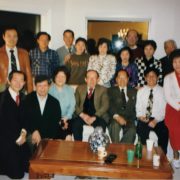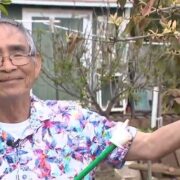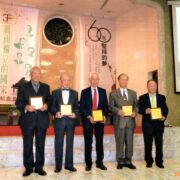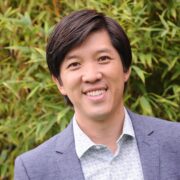The Taiwanese Association of Greater Portland, Oregon – From Establishment up to Today
Author: Chen-ya Chiu
Portland is the largest city in the state of Oregon, located in the Northwestern United States. The number of Taiwanese living here is relatively small compared to other major cities on the West Coast, but recent years have seen more and more Taiwanese moving to Portland, and the number of people who have come to participate in our activities have also increased quite a lot. Nearly 200 people attended the Association’s Lunar New Year banquet this year. Perhaps due to the rise in housing costs in neighboring cities and the increase in employment opportunities here, the number of Taiwanese people who have come to Portland to start a business or retire has increased annually, making it so that the Taiwanese Association’s activities are all very lively and grand.
However, as former president Chang-hsi Chang tells it, when he moved to Portland in 1974, there were barely any Taiwanese people. Only the Chinese association had any Chinese activities, but the participants were all Cantonese people, and there were no other Taiwanese or Taiwanese-speaking organizations. So, in the early 1970s, a group of Taiwanese people who had come to Portland to start their own businesses and were missing their homeland of Taiwan decided to establish an organization for Taiwanese people. Given that Taiwan was still under martial law at that time, even if people were living in the United States, if they chose to join a “Taiwanese Association,” they would immediately be blacklisted. It was also understood that people would be too afraid to attend the association’s parties and activities, so they created the organization with the name “Taiwan Friendship Association.” A few years later, a professor from Portland State University became the president of the Taiwan FriendshipAssociation, and he revised the charter so that people who considered themselves friends of Taiwan, including people from China or other places, could join. After this, the Association’s members began to be mostly pro-Kuomintang.
After martial law was lifted, a number of incidents occurred in Taiwan, the Wild Lily student movement rose up, a strong democratic consciousness was created, and Taiwanese Americans living in Portland began gathering again, organizing a Taiwanese organization that mainly focused on Taiwanese politics and spoke Taiwanese. Thus, the Taiwanese Association of Greater Portland (TAGP) was founded in 1992. There were four preparatory meetings during which Taiwanese American community members donated money, time, and effort. Though the process was repeatedly blocked by the different party ideals of various community members, Mr. Fu-lai Wang gathered together the Taiwanese people who supported the creation of this association and held a large-scale inauguration event at the Holiday Inn where he announced the establishment of the Taiwanese Association of Greater Portland. Former president Yao-huang Li says that approximately 160 people attended the event, and Professor Ming Min Peng was also invited to participate. Additionally, over 40 Taiwanese people from Seattle came to attend, and even people from TECO, who had not been invited, came to the event. It was a grand and glorious scene. The people whose names are signed in the sign-in book from that day were the Taiwanese Association’s first members. After the establishment of the Taiwanese Association, Mr. Fu-lai Wang was elected as the first President of the Taiwanese Association of Greater Portland, and Mr. Chen-fang Lo was elected as Vice-president. The association was the 63rd chapter to join the Taiwanese Association of America, which connected it to Taiwanese Associations in other states. Of these states, TAGP had the most enthusiastic exchanges with the neighboring association in Seattle. The founding principle of the Taiwanese Association is to concern itself with Taiwanese politics and support democracy in Taiwan. The association would not apply for funding from any Taiwan governmental offices, and the membership fee is $10 per person. Though there were only 40 or 50 members in the second year, everyone did their best to organize fundraising dinners to help ensure that the Association’s operations and activities ran smoothly.
At that time, when Professor Ming Min Peng was living overseas, he stayed in Lincoln City, a coastal town in Oregon. Thus, he was frequently invited to join the Taiwanese Association’s activities. He even served as the honorary President of the Taiwanese Association of Greater Portland, and was very active and close in his exchanges with the Taiwanese Association’s directors. Before Professor Peng returned to Taiwan in 1993, the Taiwanese Association held a farewell party for him at a Hunan restaurant in Portland. At that time, a lot of Taiwanese Americans had heard that Professor Peng was planning to return to Taiwan, and so they prepared to return together, meeting Professor Peng at the Hong Kong airport to fly back to Taiwan together. When Professor Peng was selected as the Democratic Progressive Party’s Presidential candidate in 1996, the Taiwanese Association of Greater Portland held a fundraising dinner to support his campaign.
After the Taiwanese Association was established, apart from organizing social activities for the Taiwanese community and promoting Taiwanese culture, the association also regularly hosted activities related to Taiwanese politics. The Association defended the dignity of both Taiwan and Taiwanese Americans, and supported democracy in Taiwan. In 1996 and 2000, the association supported Democratic Progressive Party candidates in Taiwan’s Presidential elections by holding fundraising dinners. In 1999, the Association hosted Mayor Frank Hsieh and a delegation from Kaohsiung City when they came to visit Portland. In late 2000, the association decided to join the Formosan Association for Public Affair’s first-ever Taiwanese American Heritage Week, which would be held in May and would promote Taiwanese culture. Since that year, the Taiwanese association organized activities every year for Taiwanese American Heritage Week.
Sometimes, the Taiwanese Association’s political ideas clash with other pro-Chinese or pro-Kuomintang organizations in Portland. TAGP clashes especially often with the Portland-Kaohsiung Sister City Organization. This is because even though Portland is supposed to be Kaohsiung’s sister city, the organization’s committee is mostly composed of white Americans, with one pro-China Taiwanese committee member, and one Cantonese committee member. The Taiwanese Association disagrees with the composition of this organization. Each June, when Portland holds its Rose Festival float parade, the Portland-Kaohsiung Sister City Association invites Taiwanese guests and performance groups to participate, but the Taiwanese Association is rarely invited to attend.
A few years after its establishment, the Taiwanese Association faced a period where membership numbers were insufficient. In 1998, when the Board of Directors took over, they conducted a survey to try and increase the number of participants in the Association’s activities. They tried changing the Association’s operations, reducing the number of political activities, specializing in social networking activities, raising awareness about Taiwan, and promoting Taiwanese culture. In 2009, former president Che-hao Chang began inviting young people to join the Association’s Board of Directors. After the Sunflower student movement, many more young Taiwanese people began attending the Taiwanese Association’s events. Thanks to the vitality and innovation of these young people, the Taiwanese Association’s activities had more interactions with the general public. In 2015 and 2016, Taiwanese American Heritage Week activities were held at the Portland Arts Center and brought in over 200 attendees. In 2017, the Taiwanese Associations of Greater Portland established a Dragon Boat racing team and recruited 25 people to participate in the Portland Rose Festival Dragon Boat Race for the first time. Former President Shyu-Tu Lee said, “serving the community is my duty; if the community needs me, I will immediately jump in and support it.” We are grateful to all of the previous presidents and directors for all of the services they’ve provided to the Portland Taiwanese community up to this point. They have unified the community, making it so that we are all friends and family who support and help one another.
The contents of this article were recorded on November 26th, 2017, when four former presidents of the Taiwanese Association of Greater Portland gathered to narrate the founding of the association. These individuals were Mr. Yao-huang Li (President in 1994), Shyu-Tu Lee (President in 1999 and 1999), Mr. Chang-hsi Chang (President in 2000 and 2001), and Ms. Chu-chih Weng President in 2004). Additionally, Ms. Chiao-yun Hsiao (President in 2015) and I, Chen-ya Chiu (current President) were also present to help record.

In 1996 when Professor Peng was selected as the Democratic Progressive Party’s Presidential Candidate, the Taiwanese Association of Greater Portland held a fundraising dinner to support his campaign.
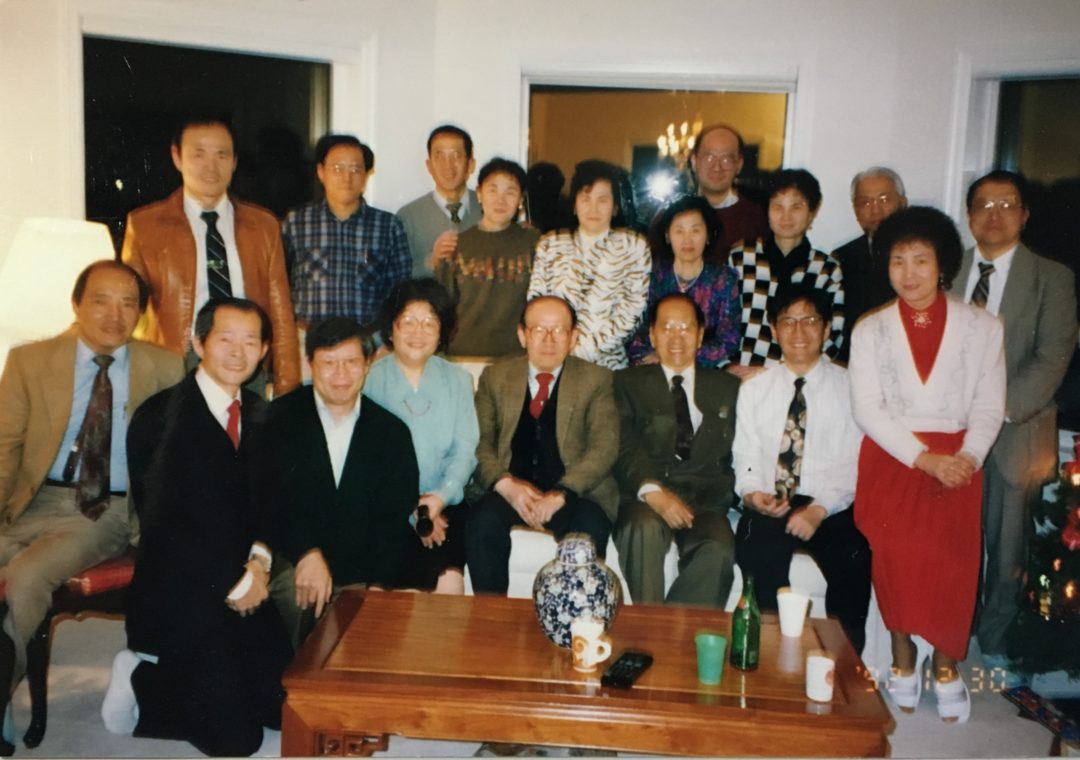
This photo was taken on December 30, 1992. It records a gathering of Taiwanese community members and Professor Ming Min Peng. Many past presidents of the Taiwanese Association were also in attendance. In the front row: Fu-lai Wang
(second from the left), Ming Min Peng (third from the right), and Mi-chen Lin (second from the right). In the back row: Fu-hsiung Wang (first from the left), Yao-huang Li (fourth from the right), Chang-hsi Chang (second from the right), and Hsien-ming Hung (first from the right).
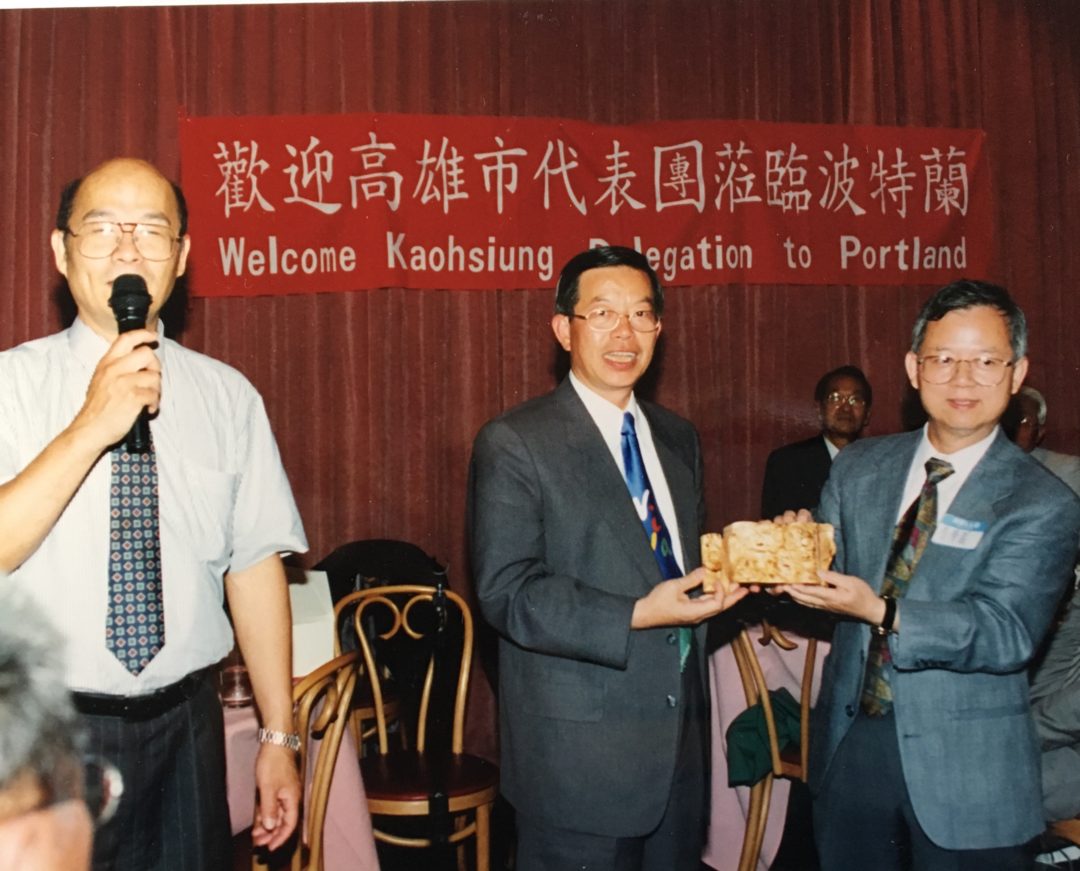
Hosting a city delegation and Mayor Frank Hsieh from Kaohsiung when they visited Portland in 1999.
Sourced from Chen-ya Chiu 12/2017
Translated from 30. 大波特蘭台灣同鄉會的簡介

